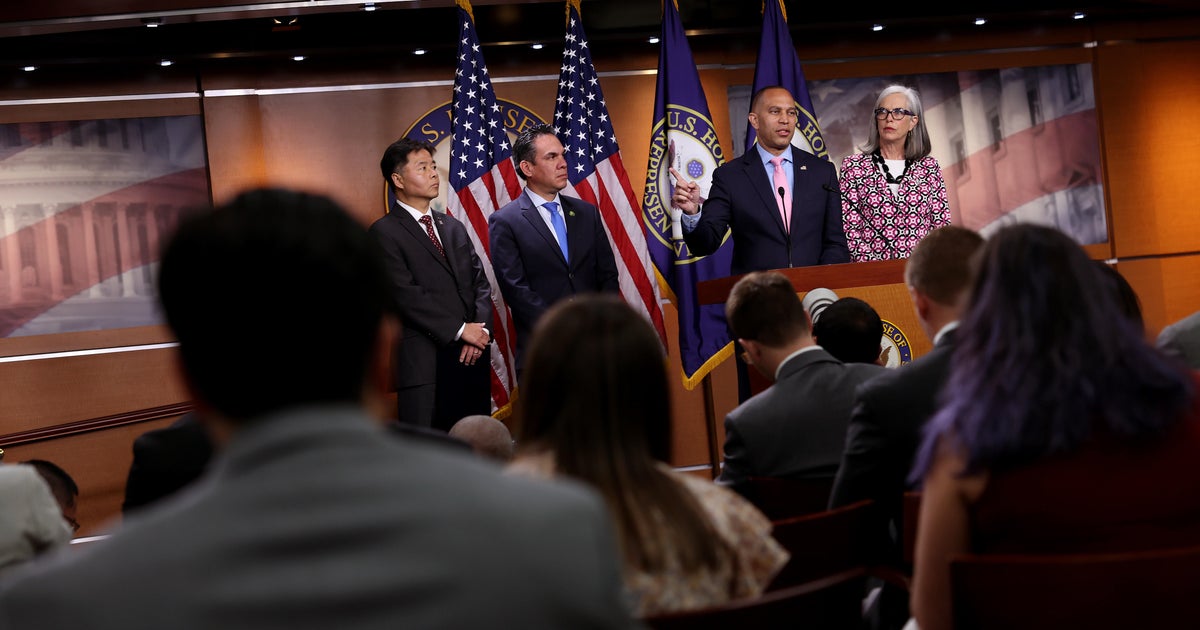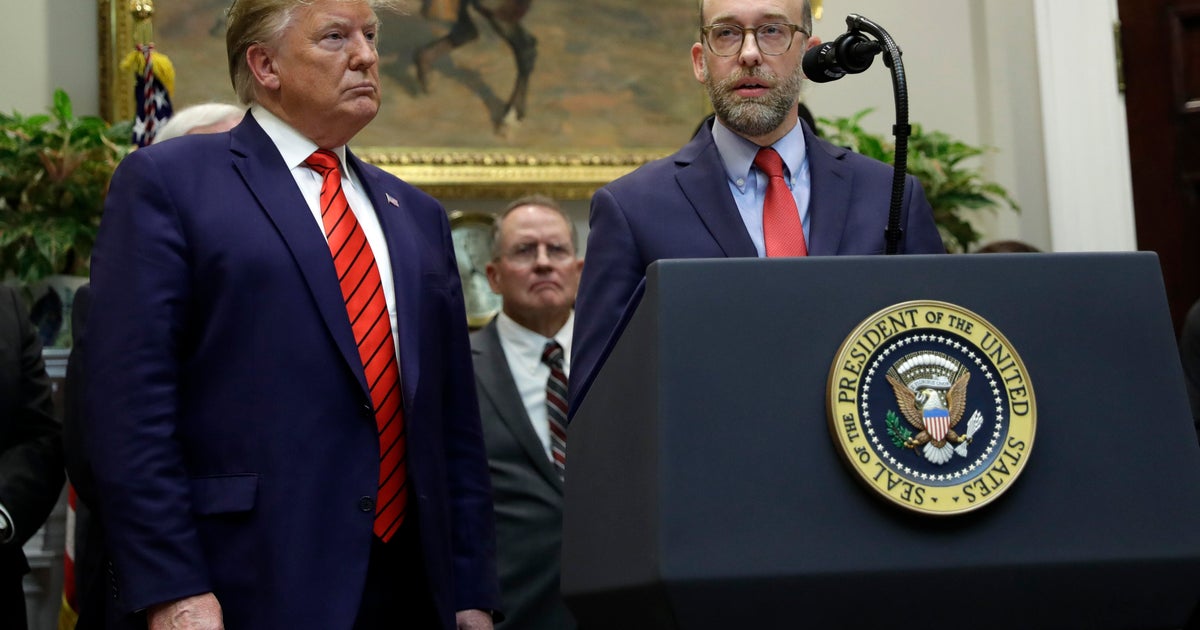CBS News Battleground Tracker poll: Biden leads, with Warren, Harris, Sanders close behind
The belief that he could fare best against President Trump is currently propelling Joe Biden in the early Democratic nomination race by two measures — vote preference, and the delegates that would come with them. But others — including Elizabeth Warren and Bernie Sanders — are in the mix, at least in terms of the candidates voters are considering.
This study looked at the Democratic contest across the places it will matter first: the entirety of 18 states that will shape the initial 2020 fight through Super Tuesday, including Iowa, New Hampshire and South Carolina. And CBS News converted Democrats' vote choices across all those states into delegates, because that's the count that will ultimately matter — that is, the nomination contest selects delegates to the Democratic convention next year.
CBS News first asked which candidates voters are considering supporting — and told them they could pick as many or as few as they liked. (As with many decisions people make, early in the process they'll narrow their options before settling on one.)
Biden gets the most consideration, from a majority 55% of Democrats. Warren (49%), Harris (45%) and Bernie Sanders (43%) are trailing closely in that regard.
Pete Buttigieg is being considered by just under a third (32%) across the earliest states. And in keeping with their view that the field is too large, on average the number of candidates voters are considering is actually relatively small — just under four.
Biden is the most effective at translating consideration into a first-choice vote. He leads across the early states in vote preference with 31% of Democratic primary voters, compared to Warren's 17%, Sanders' 16%, and Harris' 10%. Biden converts most of those considering him into picking him as their first choice when pressed, but fewer of those considering Warren or Sanders — roughly a third – pick those candidates as their first choice.
Biden also leads in Iowa, New Hampshire and South Carolina, specifically.
Iowa
New Hampshire
South Carolina
CBS News' model translates vote preferences in the states and districts into delegates because that's the count that will ultimately matter — incorporating party rules along the way. Were these vote preferences today to be the ones that emerged across all these states, Biden would lead in the delegate standings through Super Tuesday by a wide margin, with Warren and Sanders in the mix behind him.
Biden's top-preference numbers across the early states would translate into an estimated delegate standing of 731 delegates, compared to Warren's 355 and Sanders' 317. These candidates, in turn, have a distinct edge in consideration over the remainder of the field.
The model is not a forecast: it is offered as a way of demonstrating how candidate support translates into delegate allocations based on state and party rules, because the nomination contest is ultimately a contest for delegates to the convention. Delegates are awarded at the state level ("at-large") and also by district, which the model takes into account.
Voter preferences and the political landscape can and usually do change over time, and the model does not attempt to incorporate the effects of any such changes or uncertainty going forward. CBS News and YouGov plan to conduct additional interviews and revise current estimates based on updated data on a regular basis.
When CBS News asked people to pick all the candidates they are considering, as well as their ultimate first choice, we could see who's more directly in competition with whom in the minds of voters.
Sanders' first-choice voters are the most singularly-focused of the field, least likely to be considering anyone else at all. Those picking Warren as their first choice are also considering Harris, and to a lesser extent Buttigieg and Sanders. Among Democrats who prefer the nominee be a woman, a majority are considering Harris, and a majority are also considering Warren.
In the early voting states, Biden bests the field with both men and women, and his lead among black Democratic primary voters is larger than it is among whites. Biden has more support among older primary voters than younger voters.
Sanders performs well with voters under 30 years of age. Most Democratic primary voters in these early states consider themselves liberal — split between those who are very liberal and somewhat liberal. Biden trails Warren and Sanders among the "very liberal" part of the party, but runs ahead among the "somewhat" liberal voters. Biden holds an even wider lead among the quarter of Democratic primary voters who identify as moderates.
The CBS News Battleground Tracker will keep tabs on the contest as we go forward. The 2020 primaries are much bigger than just Iowa, New Hampshire and South Carolina. Many large states have stacked up in the early part of the 2020 calendar.
This could produce a clear frontrunner by spring, but on the other hand, the rules could fracture the delegate allocations. Democrats hand out convention delegates proportionally to top finishers in states — not just to winners, but in some cases to second and third place — and regionally in districts. So this could keep a large field running well into next spring. Also, the lack of so-called superdelegates this year — the party leaders who now can't vote on the first conventional ballot as they did in the past — could leave the race more open as well.
This CBS News survey is conducted by YouGov between May 31 and June 12, 2019. A representative sample of 16,624 registered voters in 18 states expected to hold early primaries and caucuses (Alabama, Arkansas, California, Colorado, Georgia, Iowa, Massachusetts, Minnesota, Nevada, New Hampshire, North Carolina, Oklahoma, South Carolina, Tennessee, Texas, Utah, Vermont, Virginia) was selected. This sample includes 7,885 self-identified Democrats and Democratic-leaning Independents. This sample was weighted according to gender, age, race, and education based on the American Community Survey, conducted by the U.S. Bureau of the Census, as well as 2016 presidential vote. The margin of error is approximately 1.5%.














